HATARAKU SAIBOU BLACK
STATUS
COMPLETE
EPISODES
13
RELEASE
March 19, 2021
LENGTH
24 min
DESCRIPTION
A rookie Red Blood Cell has been bustling about, frantically making oxygen deliveries all around the body! But his workplace is on the brink of going Code Black!! Drinking, smoking, stress, sleep deprivation... Struggling to survive a life not unlike the brutal corporate world, what must these overworked cells be thinking at the end of the day? This is a tale about the inside of your body...
(Source: Funimation)
Notes:
- The episodes were streamed two days ahead of the Japanese broadcast on Funimation beginning on Jan 8, 2021 at 2:30 JST. The regular TV broadcast started on Jan 10, 2021 at 0:00 JST.
- Episodes 3 and 4 were broadcast in Japan as a one hour special episode on Jan 19, 2021 at 1:40 JST.
CAST

Hakkekkyuu U-1196

Youko Hikasa

Sekkekkyuu AA2153
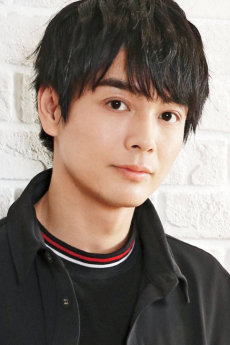
Junya Enoki

Narrator
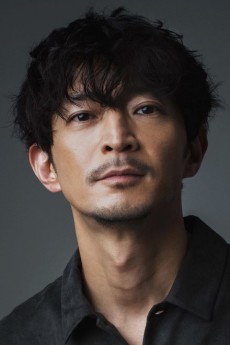
Kenjirou Tsuda

Sekkekkyuu AC1677
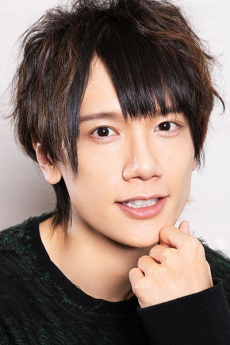
KENN

Hakkekkyuu 8787

Lynn

Hakkekkyuu 1212

Yumi Uchiyama

Kesshouban

Yurika Kubo

Kan Saibou

Sarah Emi Bridcutt

Macrophage

Hekiru Shiina
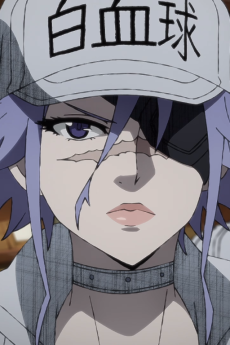
Hakkekkyuu

Shizuka Itou
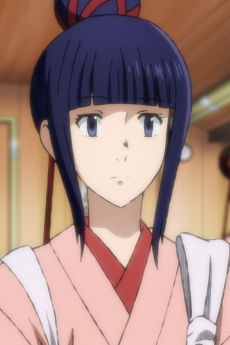
Shikyuutai

Miyuri Shimabukuro
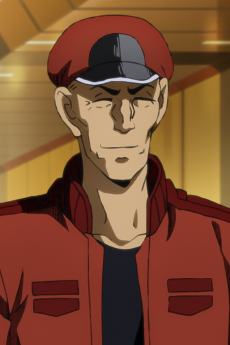
Sekkekkyuu AD6614

Yuuki Sanpei

Shikyuutai

Yukiko Aruga

Sertoli Saibou

Riho Sugiyama
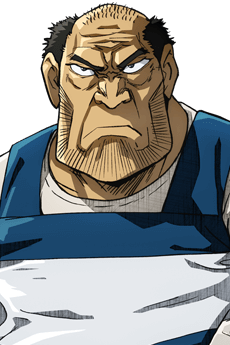
Shu Saibou

Takashi Narumi

Nou Saibou

Daisuke Hirakawa

Kesshouban

Karin Oda

Killer T Saibou

Teruyuki Tanzawa
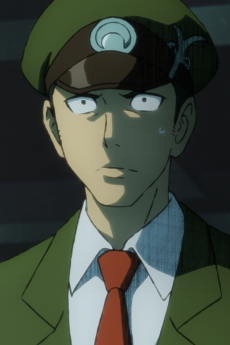
Jujousaibou

Yoshikazu Nagano
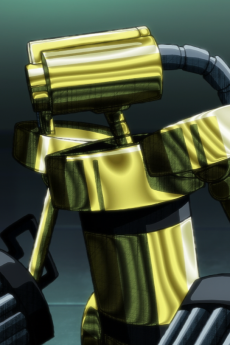
Steroids

Shinya Takahashi

Kesshouban

Yuu Ayase

Kesshouban

Chinami Hashimoto

Helper T Saibou

Kentarou Itou

Kesshouban
EPISODES
Dubbed
RELATED TO HATARAKU SAIBOU BLACK
 MANGA ActionHataraku Saibou BLACK
MANGA ActionHataraku Saibou BLACK ANIME ActionHataraku Saibou
ANIME ActionHataraku SaibouREVIEWS

TheAnimeBingeWatcher
75/100And that, folks, is how you make Cells at Work good.Continue on AniListQuestion: How does one make Cells at Work good?
I say this because I’m of the opinion that Cells at Work is not good. At best, it’s a harmless, disposable piece of educational anime that plays like every cringey video your seventh grade science teacher put on when he couldn’t be bothered to teach himself. The only novelty it has is seeing how various cells and bodily functions are realized as generic anime stock characters, and once that novelty wears off, there’s nothing in the way of actual character, emotional weight, or even just visual imagination to keep you coming back. The first season was an unremarkable 5/10, saved from sheer boredom solely thanks to the obvious fun all the voice actors were having. And the second season makes the baffling decision to sideline Kana Hanazawa’s genki doofus Red Blood Cell- easily the show’s most entertaining character- and spend five episodes focusing instead on a pointless Normal Cell who says nothing interesting, does nothing interesting, has no good jokes (or really, any jokes), and has no good reason to take RBC’s protagonist spot from her. It’s one of the most misguided choices I’ve seen in a long time, and it drags season 2 down to a 4/10 (and that’s me being generous). At this point, the franchise is little more than a black void of personality, and I can’t see it ever turning into anything worthwhile.
But if that’s the case, then why did I like Cells at Work Black so damn much?
Cause on paper, CAW Black sounds like a surefire recipe for disaster. An edgy spinoff that explores the more mature aspects of biology that regular Cells at Work didn’t touch? Sex and disease and all manner of gross, ugly bodily functions? With a gender-swapped protagonist duo including a while blood cell with big honkin titties spilling out of her unzipped army jacket? And the original manga was written by a guy best known for horny comedies like Ore Tama? Yeah, there is no way this should’ve worked. This should have been the most puerile, easily mockable laughingstock of the season. This should have been nothing but gross-out jokes, dumb fanservice, and superficial trappings of “maturity” that are only mature to dumb 14-year-old edgelords who’ve just discovered sex and violence for the first time. There is no universe in which Black should have turned out good.
And yet... it is good. In fact, in some respects, it’s really good. Sure, it’s still no masterpiece, and Lidenfilms’ production is decidedly weaker than DavidPro’s instantly striking designs and slick moments of sakuga, but this is the first time that Cells at Work actually, well, worked for me. Why? Because unlike its vanilla counterpart, Black isn’t just a lame recitation of biology facts loosely held together by empty anime archetypes. No, Black is an actual story, with actual characters and themes it’s exploring through the lens of its educational aspects. This isn’t just a rote science lesson cheaply disguised as an anime, this actually IS an anime. And it’s one of the shows I found myself most looking forward to in this very stacked anime season.
See, for those of you who don’t know, Cells at Work Black gets its name from the concept of a “Black Company.” In Japan, these are companies that severely mistreat their workers, pushing them to the breaking point for the sake of profit and staying afloat. They’re exploitative, life-destroying organizations that speak to the worst excesses of corporate greed. And if the body in original Cells at Work was a functioning company where everyone did their jobs happily and without complaint, the body in Black is a black company for the poor cells working within it. It’s constantly breaking down, its immune system is compromised, it’s overworked and overstressed, it gorges on unhealthy food, alcohol and cigarettes to cope, and it’s afflicted with all sorts of conditions. Amusingly, this implies that the person this body belongs to is also working in a black company environment, and the toxicity of that environment has turned them into an equally toxic work environment for the cells keeping them alive. But whatever the reason this body is breaking down, it’s turned the cells’ jobs into a living hell. They’re understaffed and overworked, they barely get a chance to breathe, and they’re constantly being pushed to sacrifice more and more for the sake of a company that doesn’t seem to care much if they live or die.
In other words, CAW Black isn’t just a story about a failing body; it uses that failing body as a metaphor to comment on the horrors of late stage capitalism. And it is not subtle about pushing that metaphor. Basically every episode takes some bodily function or condition and turns it into commentary on what this kind of work culture does to people. Episode 2 portrays the liver as a night district full of hostess clubs where cells come to detox, which is used to basically say “Hey, don’t be shitty to sex workers just because it looks like they’re living the high life, we’re all suffering under this garbage system.” Episode 5 tackles overwork head-on when the body’s T cells go berserk from overwork, which also doubles as commentary on how toxic masculinity reinforces dangerous, self-destructive tendencies in men who work themselves to exhaustion out of pride. Episode 6 takes us to the kidneys, a silent, Shinto-esque shrine, and uses it to say that forcing yourself not to process your emotions- to just “power through” a bad situation because you don’t want to make a fuss- is a bad idea, and you should really let yourself cry when you’re feeling stressed out. Even the weird detour into STD tentacle rape monsters in episode 4 (which is greatly toned down from the manga, I should add) still finds meaning in asking us to respect garbage men, service workers and other people with dirty and unsanitary jobs, because the fact they’re willing to get so dirty is proof of their courage and dedication to doing something that makes people’s lives better.
And yes, there are actual characters leading us through this journey. Our protagonist is fresh-faced red blood cell who quickly learns that the happy working life he was promised was a lie, and through his eyes, we see the human cost enacted by exploitative company practices. RBC faces so many horrible ways this body is failing its cells, but he refuses to give into despair like so many of his colleagues. He fights against the pressure to shut down, to bottle up his emotions and turn into a corporate zombie, to work mindlessly with no regard for who- or what- needs to be sacrificed. He’s just a single worker in a massive, sprawling system, but his small voice is a beacon of hope that this body isn’t done for yet. There’s a welcome acknowledgement that at the end of the day, workers can only do so much to improve their conditions when they’re this shitty. If things are gonna get better under capitalism, it’s gonna have to come from the top down, by completely reforming our systems until they’re no longer so destructive and predatory. Much in the same way, a body’s cells can’t save a body from self-destructing all on their own; the person has to be willing to change whatever unhealthy habits are dragging them down and make their body a healthier environment. But it’s the refusal of the little guy to give up- the Red Blood Cells of the real world who refuse to crack under the pressure of thinking things will never get better- that gives us that chance to reach that revolution in the first place. And all this from a show that started as a way to teach kids about what’s happening in their body.
But that’s the magic of Cells at Work Black. It takes a premise that should have been an instant failure, from a franchise that’s never really succeeded to begin with, and turns out something with genuine merit. It’s got actual endearing characters who go through arcs and struggle with complicated emotions. It’s got consistently great commentary on the nature of capitalism and the fight against it. It works both as education and entertainment, never sacrificing one for the other. It’s also a fantastic adaptation; I read a couple chapters of the CAW Black manga, and most of the choices that make the anime work so well- from toning down the tasteless fanservice to re-ordering chapters into a more coherent arc and even adding new characters- are a result of the anime team adding on what was already there, not being content simply copying and pasting the pages onto screen. That, more than anything, is proof of why this works so well while the original Cells at Work was such a snore. This show is a product of people who really cared about what they were making, who took a questionable source material and made it their own, who didn’t settle for a safe bet when there was something far more valuable they could achieve. Cells at Work Black may not be the best show of the season, but it’s a show I find myself respecting more and more every time I think about it. And if you passed it over thinking it was just gonna edgy garbage like I did, you might want to consider giving it a second look. It may just surprise you.

Magenta
88/100An extremely depressing journey that manages to be leagues ahead of its contemporaries in nearly every aspectContinue on AniListThe original Cells at Work was an enjoyable season, but it didn't really feel like being anything more than a good edutainment show. While it did accomplish that goal, its goal wasn't to push the boundary as to what the genre of edutainment could be. Code Black fully taps into that potential, being the truest representation of what edutainment show could be.
Code Black stands out from most edutainment shows in the fact that is in its story. Most edutainment shows don't exactly bother with establishing a well written story or characters. This is usually due to the fact that it isn't exactly part of creating educational value. The original Cells at Work didn't fall into this pitfall, by having an adequate enough story to tell. While it wasn't the best written thing in the world, it manages to develop its characters enough so that the first season's final arc felt like a great payoff. Code Black takes this idea of having a developed story, characters, and world in an edutainment show to an extreme that this genre has never really seen before.
The dark world of an unhealthy body that Code Black portrays consistently manages to be absolutely horrifying. While some may argue that the lower production value that LIDENFILMS provides takes away the show, I would actually argue that it works in the show's benefit, since it greatly bolsters the atmosphere of very scene. As a series, Code Black capitalizes on the fear of the loss of control. Every single episode presents a problem caused by the unhealthy body, and while the problem usually gets solved by the end, they are never without their consequences. The prevailing fear of death is always a factor in Code Black, which always exponentially heightens the tension of every situation. I was always on edge in every episode, because the show consistently does such a great job at building up its situations.
One of the main surprises that this series brought was in its plot and characters. The plot of Code Black isn't just okay like in the original series. Code Black's story passes good and goes straight into greatness. While there is a semi-episodic structure present throughout the series, nearly every single main character goes through a convincing character arc. The main Red Blood Cell's character is easily the highlight here. How his arc of learning how to adapt to his environment slowly develops throughout the series shows a level of mastery that I absolutely wasn't expecting. The characters of the Red Blood Cell friend, the White Blood Cell, and every other character that was dedicated to a singular episode have incredibly written too. Every high stakes scene has an extra layer of anxiety just due to the fact that I actually cared for them. This dedication to character development massively pays off in the second half, with some of the most shocking and heart-wrenching moments that caught be extremely off guard.
Code Black's consistent brilliance in how it weaves its themes together elevate it way more than being just a great series. The main mantra of the series that we should always keeping on working. Work. Work. Work. Work. The barrage of demands from the cells of a higher status make everything end up feeling hopeless at a certain point. However, something very important that this series does is to ask, why do we work? Why work under circumstances so increasingly harsh? Why work in a time when nothing seems all for nothing? Code Black answers that question in saying that we work to make things better. If we just give up at a certain point, then nothing will ever get better. The world will never shine brightly with glee ever again. Even when all seems hopeless, we can only gain hope again if we work. Even if we contribute very little, our work can still have impact. No matter how big or small we are, we can always just move on. Even if our chances have changed from a 0% to a 0.1%, we still at least have a chance.
Cells at Work Code Black may just seem like just a darker Cells at Work at first, it manages to be more than that. It is an amazing work of storytelling, world-building, and character development. By taking its time in establishing and developing every aspect of its story, it actually manages to teach way more than edutainment shows that don't even bother with plot development. Code Black is the absolute paragon of what an edutainment shows can be.

dihahah
85/100A story about ambitious cells working in a hopeless bodyContinue on AniListSleep deprivation. Alcoholism. Smoking. Overconsumption of fast food. We all know these are bad for health but how bad is bad? Cells at work code black shows us the point of view of cells in these tough situations and what they do to help our body recover. Personifying cells can make a powerful impact and help us to sympathize with them. The combination between fact and fiction was wonderfully done. What makes code black different from the main series is that there are problems every episode that cannot be resolved. In some episodes, some external intervention was needed like antibiotics, surgery etc. This was not seen in the main series as the problems were overcome by the cells themselves. The message here is that some effects are irreversible and places huge stress on our bodies’ protective mechanism
I dare say that this is close to a war anime. If you are into relentless battles and emotional camaraderie-ship, this anime is for you. You can see that the cells fight painfully against any germ or bacteria only to be faced with more problems. What may seem as normal on the outside of our body is actually creating a living hell for our cells. While the show does have some wholesome moments where cells work together and appreciate each other, the show is generally has a doomsday vibe where the body is deteriorating episode by episode ( I was surprised he survived 13 episodes)
The main character is a rookie red blood cell learning the ropes being a full time red blood cell. He is your average protagonist: eager to do his work right, cherishes his friends and always wants to save the day. He is very passionate about his job and would do anything to save the body. Unfortunately, he started his work at the wrong time. His experience is very real: ragging from seniors, pressure from higher ups and taking advice from old and dying blood cells. His resilience and passion for work motivates him to run around the body delivering oxygen, vital to the body. This pressure is increased as regardless of the situation, oxygen is necessary to keep the body surviving. He understands the importance of his job. Unlike the main series where the focus in each episode was the cell in the target region, this whole series has emphasis on red blood cells and their struggle to deliver oxygen in plaque filled vessels and exposure to hazards like kidney stones. We also get to see mission control (the brain) sweating buckets whenever a problem has no hope of recovery.
This brings me to my point about the characters, While they do have human-like emotions, they are born to work. I found it philosophical that the reasons for cells to exist are to keep the body alive and save it from any impending doom. However, what happens when the body dies? The main conflict in the show is that the human keeps neglecting his health but the cells are constantly motivated to keep it alive. The concept of cell specialization is highlighted in the show where each cell has their own purpose in that organ which other cells cannot do. The last 2 episodes were the climax of the show and we can see all the cells at their peak, praying that the body stays alive. I like that they included some rebel cells who rejoice at the thought of the body dying and don't feel like working for the dying body. This way, a conflict is set up in the show and makes the cells more human.
The animation, although sketchy, was well done and helped to enhance the special effect of the show. The different parts of the body were creatively shown, Cells At Work speciality. The germs and pathogens were gnarly. I was hoping they could have included an episode on drugs and their effect on nerve cells. However, alcoholism and sleep deprivation are already pertinent problems plaguing our society today and it showed the many harms caused by them. The biological facts were digestible and everything was explained clearly. All in all, it was an entertaining show and very educational as well.
SIMILAR ANIMES YOU MAY LIKE
 ANIME ActionHataraku Saibou!!
ANIME ActionHataraku Saibou!! ANIME ComedyTenchi Souzou Design-bu
ANIME ComedyTenchi Souzou Design-bu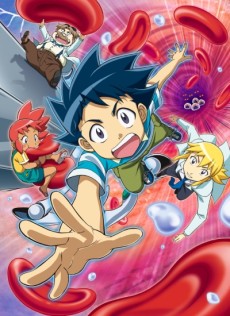 MOVIE ActionJintai no Survival!
MOVIE ActionJintai no Survival! ANIME ComedyClassicaLoid 2
ANIME ComedyClassicaLoid 2 ANIME ComedyMoyashimon Returns
ANIME ComedyMoyashimon Returns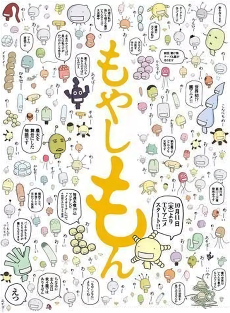 ANIME ComedyMoyashimon
ANIME ComedyMoyashimon
SCORE
- (3.65/5)
TRAILER
MORE INFO
Ended inMarch 19, 2021
Main Studio LIDENFILMS
Favorited by 534 Users
Hashtag #細胞BLACK


